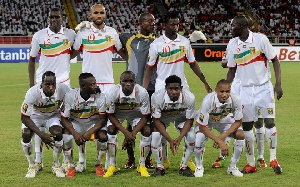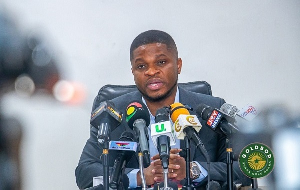Leading Ethiopian opposition figure Jawar Mohammed has told a court in the capital that he was "proud" to have been charged with terrorism.
The influential former media mogul was not admitting guilt but accusing the government of targeting opposition figures like him.
Mr Jawar was charged alongside 22 other individuals and one media house.
The charges relate to a wave of ethnic unrest that followed the murder in June of popular musician Hachalu Hundessa.
More than 150 died in the violence after the ethnic Oromo performer was gunned down in Addis Ababa.
Mr Jawar, the 22 others and the Oromia Media Network (OMN), which he used to run, are being charged with terror and firearm offences and telecom fraud.
The exact details of the charges have not yet been released but they have been accused of fomenting the violence.
This was the first court appearance since the charges were made public on Saturday. Mr Jawar has been held since 30 June.
Dressed in a suit in the Addis Ababa court, Mr Jawar seemed tired, as if his 12-week detention had taken its toll, the BBC's Kalkidan Yibeltal reports.
But when he started speaking he was his old, fiery and energetic self, our correspondent adds.
"I am proud to be charged with terrorism for the second time in my life," he told the court.
He had been charged before, while living in exile in the US, for his work with the OMN, but the charges were dropped when reformist Prime Minister Abiy Ahmed came to power in April 2018.
In court, Mr Jawar accused the government of locking up anyone they suspected of being a strong opponent in the next election. He said the authorities had seen that his party, the Oromo Federalist Congress, was more popular than the governing Prosperity Party.
Elections were due to take place in August but were postponed because of the coronavirus pandemic.
A former ally of Mr Abiy, Mr Jawar has criticised the Nobel Peace Prize winner for not having done enough to address the long-felt grievances of the Oromo people, which they both belong to.
In an opinion piece published online by the Economist on Friday, Mr Abiy said people opposed to his reforms were harvesting the seeds of inter-ethnic and inter-religious division and hatred.
He came to office promising an end to decades of authoritarian rule, but this case along with other arrests have led some to accuse the government of harking back to its old methods.
But Mr Abiy said that "demagogues and... those who peddle hatred [were] using the ethnic and religious diversity of our nation as a tool of division".
Africa News of Monday, 21 September 2020
Source: bbc.com
Jawar Mohammed: Top Ethiopia opposition figure 'proud' of terror charge
Entertainment












